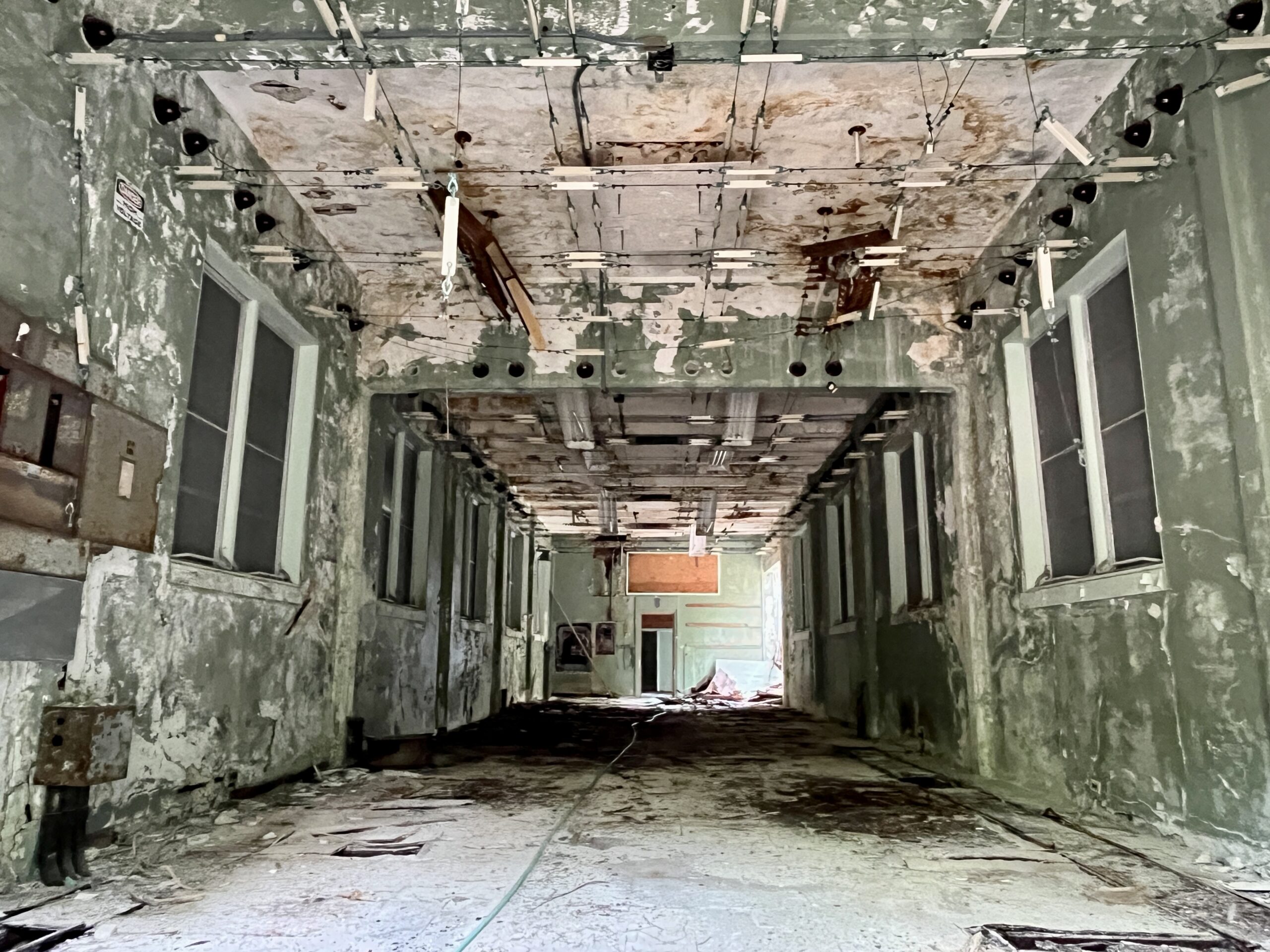03 March 2025
On my day off today I went exploring. First let’s talk about Australian ironwood trees. The phase “you can’t see the forest because all of the trees are in the way” comes to mind as I bring this up. These ironwoods are not native to Wake but they have found a home here. I’ll give them credit for their resilience to survive in this climate. Each one produces thousands of seeds so they spread all over the island. I’m not a fan of them. Having grown up in Washington State, I’m more of a Douglas Fir fan, or in Montana, Tamaracks are my favorite especially in the fall when they change color.
Back to the main point. Many of the old structures and buildings are largely obscured or hidden by the forests of ironwoods here. Their big overstory largely blocks out any underbrush from getting a foothold. And the ironwood’s long wispy needles create a thick carpet mulch that further suppresses any other seeds from germinating. However, that lack of understory makes it relatively easy to walk through the forest as I found out today.
I was told one of these buildings here used to house an old transmitter site. I made it my mission to go check this building out on my lazy day off from work and away from the ham radio. I was pleasantly surprised to find some of the equipment racks still inside. You could almost feel the memory of all that RF that must have poured out of there. Along the outside walls were dozens of insulators and feed points that must have fed impressive antenna arrays. I will just post the pictures here, below, and hopefully one of you all might know more about the history and mission of this site. Feel free to leave a comment if you want to share more information.
73, Allen











12 responses to “Wake Island Walk About”
Allen good morning.
The photos of that site belong to the archaeology of radio!
From what can be deduced from your photos, very well done, the room in the largest photo was the one that switched the antennas according to need. You can see it from that spiderweb of wires with large insulators.
The remains of the transmitter, which was a broadband from 2Mhz to 30Mhz, give the impression of a robust and well-made construction.
Unfortunately the passage of time has made the equipment unusable.
Allen I ask you: do you have any news if there was a broadcasting used during the Cold War from Wake?
I conclude by thanking you for the beautiful photos that offer us the history of Wake Island.
73′ de I5NSR Sergio.
Cool!
I sent you an email that might answer what these pics show. Might be an old LORAN station. See the link I sent you. Hope to work you again.
LORAN has been a popular guess, however, that station was on Peale Island that is the northwest part of the Wake Atoll. I have it under good authority now that this was used by the FAA early after WWII and by the Air Force as a long-haul transmit site into the 1970s.
Allen
Hmmm could possibly be. I did find this however, but still, the history is still interesting.
The United States Coast Guard Loran station, which supported a radio navigation system, had a staff of about ten people and operated from 1950 to 1978, with facilities rebuilt on Peale Island by 1958.[33][34] Originally, the staff lived on Wake and commuted to the Loran station on Peale across the bridge; the Loran equipment was in a Quonset hut. However, after 1958, new modern facilities were all built on Peale. The cargo ship USCGC Kukui supported construction of the new Loran facilities, arriving at the island in 1957.[35]
Loran station from the fifties?
Giampaolo IU2EFB
LORAN has been a popular guess, however, that station was on Peale Island that is the northwest part of the Wake Atoll.
Allen
Fascinating Allen, great shots. Don’t suppose that old amp could be persuaded back into action! Hope to make it through with you sometime — tough from the UK
73 Laurie G3UML, London
Allen, that’s a very nice collection of history!
Some of those parts should still be useable. Second photo on the left shows a nice vacuum variable capacitor. And the air variable capacitors may still work with some cleanup, and the coils and those old meters. This could be a good source of parts for tuning networks for your low band antenna projects. (You are getting on 160 and 80m, right? Big demand there!).
Thanks for our QSO on 40m CW. That was a new band country for me. Will be looking for you on other bands (setting the alarm for 2 a.m. here). 73 de Jon AA1K in Delaware
Perhaps you’ll find your answer(s) on these sites.
https://www.navy-radio.com/index.htm
or
https://www.navy-radio.com/commsta/todd-hawaii-01.pdf
73, Kevin, NC6V
Allen, I heard you today on 30m but could not get through. Here in Florida, those trees are known as “Australian pines” (likely Casuarina equisetifolia) even though they are a hardwood and not related to pines – they are known as ‘she-oaks’ by the Aussies. They are a pan-tropical invasive species but often the only shade in some areas. Great photos! I hope to work you during another one of my insomniac periods!
73, Dave : NN4DF
Thank you very much for the information, Dave. I did get to work a few Floridians this evening. I hope we get the chance to meet in the near future.
73,
Allen ~ KH7AL/KH9